- Details
 The International Space Science Institute (ISSI), in Bern, Switzerland, and in Beijing, China, invites proposals to establish international teams to conduct research activities in space sciences, based on interdisciplinary analysis and evaluation of data from spacecraft and possible integration with ground data and theoretical models. For the purpose of this call space sciences include the solar and heliospheric physics, solar-terrestrial sciences, space plasma and magnetospheric physics, planetary sciences, astrobiology, cosmology, astrophysics, fundamental physics in space, and Earth sciences using space data. Deadlines are:
The International Space Science Institute (ISSI), in Bern, Switzerland, and in Beijing, China, invites proposals to establish international teams to conduct research activities in space sciences, based on interdisciplinary analysis and evaluation of data from spacecraft and possible integration with ground data and theoretical models. For the purpose of this call space sciences include the solar and heliospheric physics, solar-terrestrial sciences, space plasma and magnetospheric physics, planetary sciences, astrobiology, cosmology, astrophysics, fundamental physics in space, and Earth sciences using space data. Deadlines are:
More infomation is available on the ISSI website and in the PDF: ISSI call.
- Details
 Due to increasing concerns with regard to the weather and climate of the Polar Regions, the World Meteorological Organization (WMO) has established a ten year Polar Prediction Project (PPP) under the auspices of the WMO World Weather Research Programme (WWRP). One of the main PPP activities will be the Year of Polar Prediction (YOPP) in order to enable a significant improvement in the environmental prediction capabilities for the Polar Regions, and beyond. The core period of YOPP will entail intensive observation and modelling campaigns in both the Arctic and the Antarctic, scheduled from mid-2017 to mid-2019.
Due to increasing concerns with regard to the weather and climate of the Polar Regions, the World Meteorological Organization (WMO) has established a ten year Polar Prediction Project (PPP) under the auspices of the WMO World Weather Research Programme (WWRP). One of the main PPP activities will be the Year of Polar Prediction (YOPP) in order to enable a significant improvement in the environmental prediction capabilities for the Polar Regions, and beyond. The core period of YOPP will entail intensive observation and modelling campaigns in both the Arctic and the Antarctic, scheduled from mid-2017 to mid-2019.
- Details
The First Report of the Tropical Pacific Observing System 2020 project was published on 30 December 2016. This report contains initial recommendations for the Backbone and a synopsis of initial results and plans for the various initiatives of TPOS 2020. The Executive Summary and the full First Report can be downloaded from the tpos2020.org website or from the GOOS Report site. Further inquiries should be directed to 
- Details
 The World Climate Research Programme (WCRP) facilitates the analysis and prediction of many aspects of Earth system change. Our Programme covers complex research questions, many with immediate relevance to understanding and predicting human impact on climate. The WCRP ‘Grand Science Challenges’ convey and address daunting research questions that confront the climate research community. However, faced with a planet that shows increasing signs of rapid change, have we missed something among our science priorities? Do we address our priorities in a coordinated and efficient manner? Do we share and can we convey a compelling overall vision?
The World Climate Research Programme (WCRP) facilitates the analysis and prediction of many aspects of Earth system change. Our Programme covers complex research questions, many with immediate relevance to understanding and predicting human impact on climate. The WCRP ‘Grand Science Challenges’ convey and address daunting research questions that confront the climate research community. However, faced with a planet that shows increasing signs of rapid change, have we missed something among our science priorities? Do we address our priorities in a coordinated and efficient manner? Do we share and can we convey a compelling overall vision?
- Details
The deadline for cities to apply to host the 2018 Cities and Climate Change Science Conference has been extended to January 31, 2017. This key event, co-sponsored by the IPCC, will further develop the scientific understanding of climate change and cities, in support of the implementation of the Paris Agreement, the New Urban Agenda, and the Sustainable Development Goals.
For the full press release go to the C40 media webpage.
You can also directly download the Host City selection process Request for Proposals (.pdf)

- Details

We will very likely regard 2016 as a year of climatic and political extremes. Personally I find the surge in atmospheric CO2 – momentarily roughly 5 ppm higher on 1 January 2017 than on the same day a year earlier – remarkable and worrisome but I think most of us, as we look carefully at many facets of the climate system, will admit to surprises in 2016. Whatever our political views and across our wide range of expertise, I suspect we share and resonate with a general sense of uncertainty as the new normal.
What should we anticipate for 2017?
- Details

The Climate and Cryosphere (CliC) project is one of WCRP's four core projects. It spans the entire diversity of the Earth’s cryosphere: marine cryosphere, terrestrial cryosphere, alpine cryosphere, and ice sheets. A balance between disciplinary specialization and multi-disciplinary collaboration allows integrating the outcomes of this research as input to assessments and predictions of the cryosphere and climate. The connection between cryospheric observations, process studies and modelling (regional and global) is an increasingly important focus for CliC.
- Details
- Details
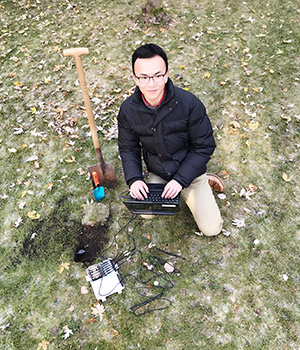
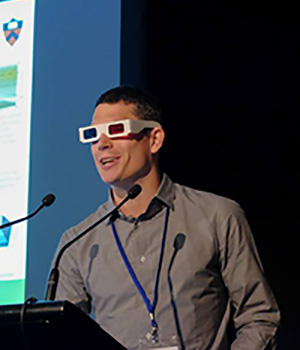
- Details
![]() Highlights of the December CLIVAR Bulletin include:
Highlights of the December CLIVAR Bulletin include:
- CLIVAR/IOC-GOOS Indian Ocean Region Panel will get together in Perth early 2017
- CLIVAR participated PICES 2016 Annual Meeting
- ICPO visits to marine and ocean related institutions in China
Plus more news, announcements and upcoming events!
- Details
- 10 Years of MAHASRI Accomplishments Summarized
- Results from MAHASRI Project Used in Hydrological Models to Simulate Impacts of Reservoir Operation for Mitigating Floods
- Human Regulation of the Water Cycle (HRWC)—a new GHP/GLASS Crosscutting Project to address the Grand Challenge of Water for the Food Baskets of the World
- New Global Precipitation Climatology Project (GPCP) monthly analysis product corrects satellite data shifts
- GEWEX Convection-Permitting Climate Modeling Workshop addresses major challenges and future research strategies
- Robust Response of Global Mean Precipitation to Anthropogenic Aerosols
- Third Satellite Soil Moisture Validation and Application Workshop recommends that passive microwave L-Band measurements be continued in new constellations of satellites
For more see GEWEX E-News.
- Details
- Details
 10-14 July 2017, Columbia University, New York (NY) - USA
10-14 July 2017, Columbia University, New York (NY) - USA
Abstract Submission and second circular now available: http://sealevel2017.org/
The WCRP, jointly with the Intergovernmental Oceanographic Commission of UNESCO (IOC), is organizing an international conference on sea level research that will address the existing challenges in describing and predicting regional sea level changes, and in quantifying the intrinsic uncertainties. It follows 11 years after the first WCRP sea level conference(Paris, 2006), and three years after the last Assessment Report of the Intergovernmental Panel on Climate Change (IPCC). It will provide a comprehensive summary of the state of worldwide climate-related large scale sea level research.
- Details
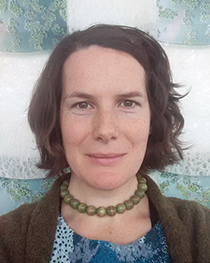 We are pleased to announce that Dr. Kate Willett from the Met Office Hadley Centre, UK, has been awarded the WCRP/GCOS International Data Prize 2016. The Prize Committee, consisting of representatives from WCRP, the Global Climate Observing System (GCOS) and their joint panels the Atmospheric Observation Panel for Climate (AOPC), Terrestrial Observation Panel for Climate and Ocean Observations Panel for Climate (OOPC), was greatly impressed by her outstanding contribution in supporting the development of data sets for climate research.
We are pleased to announce that Dr. Kate Willett from the Met Office Hadley Centre, UK, has been awarded the WCRP/GCOS International Data Prize 2016. The Prize Committee, consisting of representatives from WCRP, the Global Climate Observing System (GCOS) and their joint panels the Atmospheric Observation Panel for Climate (AOPC), Terrestrial Observation Panel for Climate and Ocean Observations Panel for Climate (OOPC), was greatly impressed by her outstanding contribution in supporting the development of data sets for climate research.
- Details
- GCOS-WCRP Atmospheric Observation Panel for Climate (AOPC);
- GCOS-GOOS-WCRP Ocean Observation Panel for Climate (OOPC);
- GCOS-WCRP Terrestrial Observation Panel for Climate (TOPC).
- Details
 We are pleased to announce that Dr. Irina Sandu from the European Centre for Medium-Range Weather Forecasts (ECMWF), UK, has been awarded the WCRP/WWRP International Prize for Model Development 2016. The Prize Committee, consisting of representatives from WCRP, World Weather Research Programme (WWRP) and Working Group on Numerical Experimentation (WGNE) was greatly impressed by her outstanding contribution in the field of weather and climate model development.
We are pleased to announce that Dr. Irina Sandu from the European Centre for Medium-Range Weather Forecasts (ECMWF), UK, has been awarded the WCRP/WWRP International Prize for Model Development 2016. The Prize Committee, consisting of representatives from WCRP, World Weather Research Programme (WWRP) and Working Group on Numerical Experimentation (WGNE) was greatly impressed by her outstanding contribution in the field of weather and climate model development.
- Details
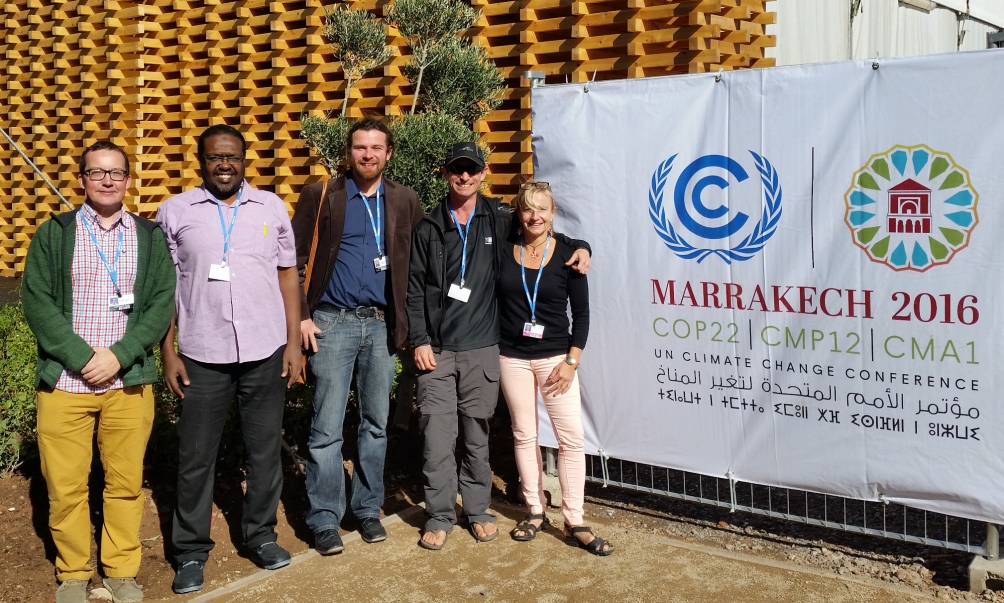 Researchers in the CORDEX-Africa project have developed an initiative to co-develop knowledge on climate change impacts in Africa. Co-ordinated at the University of Cape Town with support from the Swedish Meteorological and Hydrological Institute (SMHI) and the Climate Service Centre in Germany, they plan to develop a climate atlas showing the regional effects of various climate scenarios as a support for important functions in society.
Researchers in the CORDEX-Africa project have developed an initiative to co-develop knowledge on climate change impacts in Africa. Co-ordinated at the University of Cape Town with support from the Swedish Meteorological and Hydrological Institute (SMHI) and the Climate Service Centre in Germany, they plan to develop a climate atlas showing the regional effects of various climate scenarios as a support for important functions in society.
- Details
![]() The latest SPARC eNews bulletin includes outcomes from the SPARC Scientific Steering Group meeting, information about the science policy forum: 'Making climate science more relevant' and the latest SPARC publications, special journal issues and science update.
The latest SPARC eNews bulletin includes outcomes from the SPARC Scientific Steering Group meeting, information about the science policy forum: 'Making climate science more relevant' and the latest SPARC publications, special journal issues and science update.
- Details

This Open Science Meeting (OSM) and associated Young Scientists Meeting (YSM) are the premier scientific events of Past Global Changes (PAGES), a scientific partner of the World Climate Research Programme. The theme of the OSM and YSM is "Global Challenges for our Common Future: a paleoscience perspective." For details of all the sessions, further information and to submit an abstract to the OSM, please see the PAGES Open Science Meeting (OSM) website.
- Details
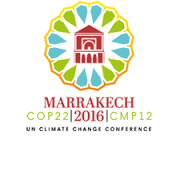 Women-ACS (Women Advancing Climate and Climate Change Sciences) is a new international initiative that aims to increase women's participation and accomplishments in the domain of climate and climate change science. A side event will be held at COP22 today to celebrate the achievements of women in this area and to discuss how to strengthen the participation of women in the future. If you are in Marrakech, then you are welcome at the event:
Women-ACS (Women Advancing Climate and Climate Change Sciences) is a new international initiative that aims to increase women's participation and accomplishments in the domain of climate and climate change science. A side event will be held at COP22 today to celebrate the achievements of women in this area and to discuss how to strengthen the participation of women in the future. If you are in Marrakech, then you are welcome at the event:
Women Advancing Climate and Climate Change Sciences (Women -ACS)
14 November 2016, 13:00-14:30, COP22 Green Zone, RM ZIZ.
(Click the above link for the flyer)
- Details
TOWARDS THE 2018 CITIES AND CLIMATE CHANGE SCIENCE CONFERENCE
An international conference on cities and climate change science will be held in 2018 to further develop the scientific understanding of climate change and cities, in support of the implementation of the Paris Agreement, the New Urban Agenda, and the Sustainable Development Goals. Cities interested to host it are invited to apply by January.

- Details
 16-21 January 2017
16-21 January 2017
Jeju Island, Republic of Korea
This is the last DAY to apply for the WCRP-JNU Training School on Monsoon Variability in Changing Climate. It is going to be a fantastic school, with applications coming in from all over the world. Don't miss out!
Apply here! Deadline: 15 November 2016
- Details
![]() The November 2016 CLIVAR Bulletin includes a thank you from the CLIVAR Scientific Steering Group Co-chairs to those who attended the CLIVAR Open Science Conference, reflections on the CLIVAR Early Career Scientists Symposium 2016, a link to the WCRP Communication Survey, a call for US CLIVAR Panel Member nominations, an overview of CLIVAR participation in the 16th SOLAS SSC meeting, and lots, lots more!
The November 2016 CLIVAR Bulletin includes a thank you from the CLIVAR Scientific Steering Group Co-chairs to those who attended the CLIVAR Open Science Conference, reflections on the CLIVAR Early Career Scientists Symposium 2016, a link to the WCRP Communication Survey, a call for US CLIVAR Panel Member nominations, an overview of CLIVAR participation in the 16th SOLAS SSC meeting, and lots, lots more!
- Details

Yesterday was Earth Information Day, which encouraged engagement between the science community and other stakeholdes and provided an up–to-date picture of the state of the climate and an outlook on developments and opportunities.
The programme (with slides) and webcast are available to view.
WCRP's Director, David Carlson, gave a presentation on 'Products and indicators to monitor the state of the climate system' (slides, webcast (at 1:43:04)). The take home message is that there are three main indicators that provide a good measure of the state of the climate system: heat/energy, carbon (CO2 and CH4) and sea level (heat/water). These indicators also have in common that they are assembled and calibrated by large teams of researchers, are open access, are reviewed and published in the Earth System Science Data journal and can be supplied on annual (or at least less than 5 year) timescales.
For more information on Earth Information Day also see this collection of impressions from UN Adaptation.
- Details
Most of the papers in the CMIP6 Experimental Design and Organization special issue of Geoscientific Model Development (GMD) have now been finalized, with a few still waiting on final submission confirmation. Papers included in this special issue are listed below and can be accessed on the GMD website. This special issue is a fantastic achievement by the CMIP6 Community and shows the extent of the project's capabilities.



